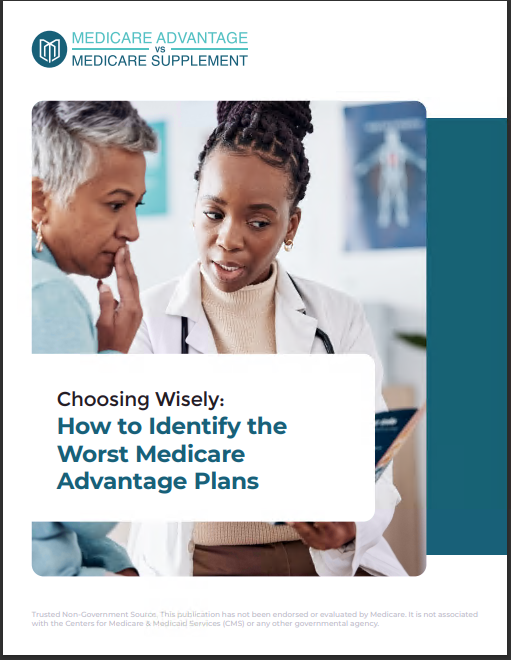Key Takeaways
- Medicare eligibility depends on age, disability status, and medical conditions, offering a clear path to coverage for millions.
- Understanding the rules around Medicare Part A, Part B, and special enrollment situations can help determine when you qualify.
Medicare Eligibility Explained in Simple Terms So You Can Find Out If You Qualify
Medicare is a federal health insurance program primarily for individuals aged 65 and older, but it also covers certain younger people with disabilities or specific medical conditions. Determining whether you qualify for Medicare might seem complicated, but it’s simpler than it appears. This article will break down eligibility criteria and offer easy-to-understand explanations so you can find out if you qualify.
Who Is Eligible for Medicare?
Eligibility for Medicare can be grouped into three main categories: age, disability, and specific medical conditions. Each of these categories has clear guidelines, so let’s explore them one by one.
Age-Based Eligibility: 65 and Older
The most common way to qualify for Medicare is by reaching the age of 65. U.S. citizens or permanent residents who have lived in the country for at least five consecutive years before enrolling are eligible.
For many people, Medicare Part A (hospital insurance) is premium-free if they, or their spouse, have worked and paid Medicare taxes for at least ten years (or 40 quarters). If you haven’t worked for that amount of time, you may still be eligible, but you may have to pay a premium for Part A. Medicare Part B, which covers outpatient care, requires a premium regardless of work history.
Disability-Based Eligibility
Individuals under the age of 65 may qualify for Medicare if they have a disability. To qualify, you must be receiving Social Security Disability Insurance (SSDI) benefits. After receiving SSDI for 24 months, you become automatically eligible for Medicare. This applies to both Medicare Part A and Part B.
This automatic eligibility offers a significant benefit to those with long-term disabilities, ensuring that they receive coverage without additional hurdles. The 24-month waiting period can be waived for individuals diagnosed with Amyotrophic Lateral Sclerosis (ALS), also known as Lou Gehrig’s disease. These individuals are automatically enrolled in Medicare as soon as their SSDI benefits begin.
Special Medical Conditions: End-Stage Renal Disease (ESRD)
Some individuals qualify for Medicare based on specific medical conditions, such as End-Stage Renal Disease (ESRD). ESRD is a condition where the kidneys no longer function adequately, requiring dialysis or a kidney transplant.
People with ESRD may be eligible for Medicare regardless of age, but they must meet certain criteria, such as requiring regular dialysis or having had a kidney transplant. If they meet these conditions, they can enroll in Medicare and receive the necessary treatments under Medicare Part A and Part B.
Do I Qualify for Medicare If I Have a Disability?
As mentioned earlier, individuals with disabilities who receive SSDI benefits qualify for Medicare after a 24-month waiting period. The key to this qualification is the receipt of SSDI payments, not simply the diagnosis of a disability.
In some cases, certain conditions allow individuals to bypass this waiting period. For example, those diagnosed with ALS automatically qualify for Medicare once they begin receiving SSDI benefits. The same applies to people with ESRD who need dialysis or a transplant, allowing for faster access to Medicare.
How the Different Parts of Medicare Impact Eligibility
Medicare consists of multiple parts, and understanding how these parts work can help you determine your eligibility for each one. Here’s a simplified breakdown of Medicare Part A and Part B eligibility.
Medicare Part A: Hospital Insurance
Medicare Part A primarily covers hospital stays, skilled nursing facilities, hospice care, and some home health services. For most people, Part A is premium-free as long as you or your spouse worked and paid Medicare taxes for 10 years or more.
If you haven’t worked enough to qualify for premium-free Part A, you can still buy into it by paying a monthly premium. This applies to individuals who are eligible based on age, disability, or ESRD.
Medicare Part B: Medical Insurance
Medicare Part B covers doctor visits, outpatient services, preventive care, and durable medical equipment. Unlike Part A, Medicare Part B always requires a monthly premium, regardless of your work history.
Everyone eligible for Medicare Part A is also eligible for Part B. However, enrolling in Part B is optional, and some people choose to delay enrollment, especially if they have other health coverage through an employer. In these cases, special rules may apply to avoid late enrollment penalties.
When Can You Enroll in Medicare?
Knowing when to enroll in Medicare is crucial to avoid penalties and ensure you’re covered when you need it. The key enrollment periods include the Initial Enrollment Period (IEP), the General Enrollment Period (GEP), and Special Enrollment Periods (SEPs).
Initial Enrollment Period (IEP)
The Initial Enrollment Period is the first opportunity most people have to enroll in Medicare. It begins three months before your 65th birthday and ends three months after, for a total of seven months. During this time, you can sign up for both Medicare Part A and Part B without facing penalties.
For those qualifying through disability, enrollment in Medicare occurs automatically after 24 months of receiving SSDI benefits.
General Enrollment Period (GEP)
If you miss your Initial Enrollment Period, you can still enroll during the General Enrollment Period, which runs from January 1 to March 31 each year. However, enrolling during this period may result in late enrollment penalties, especially for Part B.
Special Enrollment Periods (SEPs)
Special Enrollment Periods apply in situations where you have other health coverage, such as through an employer or union. For example, if you delay Part B enrollment because you have coverage through your job, you can enroll in Medicare without penalties when that coverage ends.
The rules around SEPs can be complex, so it’s often a good idea to consult with a licensed insurance agent to determine if you qualify.
Avoiding Medicare Enrollment Penalties
It’s essential to enroll in Medicare at the right time to avoid late enrollment penalties, which can increase your premiums. The penalty for late enrollment in Part B can be significant. It’s calculated as 10% for each 12-month period you were eligible but didn’t enroll. This penalty lasts for as long as you have Medicare.
Part D, which covers prescription drugs, also has its own late enrollment penalties. If you don’t enroll in Medicare Part D when you’re first eligible and don’t have other credible drug coverage, you may face a penalty that’s added to your monthly premium.
How to Determine If You Qualify
Determining whether you qualify for Medicare comes down to your specific circumstances. The most straightforward way is to turn 65 and have a qualifying work history. If you don’t meet this requirement, you may still qualify based on disability or special medical conditions like ESRD or ALS.
For anyone unsure about their eligibility, a good next step is to check your work history, Social Security benefits, and speak with a licensed insurance agent. They can guide you through the process and clarify any uncertainties about your situation.
Final Thoughts on Medicare Eligibility
Medicare eligibility depends on various factors such as age, disability status, and medical conditions. While the program offers broad coverage options, understanding your specific eligibility is crucial to making the most of it. Always be aware of your enrollment periods and consult professionals when necessary.
If you’re unsure about your qualifications, start by checking your Social Security records or speaking to a licensed insurance agent for personalized assistance. The more you know, the easier it is to ensure you’re getting the right health coverage for your needs.
Contact Information:
Email: [email protected]
Phone: 9495555678










